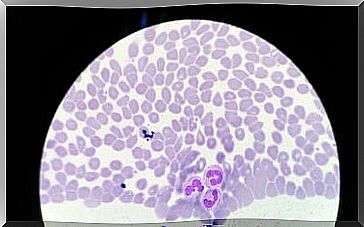6 Disadvantages Of Extreme Diets
Extreme diets propose restrictive and dangerous eating plans. Although they allow you to lose weight quickly, they cause side effects that can reduce the quality of life.

Extreme diets have become popular around the world as a “fast” way to lose weight in a few days. They are restrictive eating plans that sharply decrease total daily calories, ignoring the body’s nutritional needs.
The results they provide are almost “miraculous” and that is why many people make the decision to adopt them. The downside is that they are regimens that force the body to go beyond its capabilities, causing a series of unwanted reactions.
In addition, most of these plans produce the well-known rebound effect, which is the reason why many fail when trying to lose weight quickly and unsafe.
What are the dangers of extreme diets? Although many prefer to ignore it, this variety of food programs have disadvantages that put health at risk in many respects. Discover them!
Disadvantages of extreme diets that everyone should know
Most of the people who are interested in an extreme diet are those who have gained weight due to excesses in their diet. In the eagerness to regain their figure, they opt for those plans that promise results in days or weeks.
This is not to say that all diets are bad. However, if it is about losing weight, it is best to choose those options that propose a balanced diet with all the nutrients.
When these characteristics are not met, weight loss may be related to poor nutrition or disease. Therefore, although they allow you to lose weight, they are diets that no nutrition expert recommends. Let’s see some of its disadvantages:
1. They can cause hypoglycemia

People who eat a diet in which they are hungry have a high probability of experiencing a hypoglycemic episode. Either because they deprive themselves of a meal, or because they replace it with a simple one. E l body tends to have this kind of decompensation.
In addition, the cells do not obtain the “fuel” they require to work in optimal conditions, which triggers states of fatigue and weakness.
2. Increase cholesterol levels
When extreme diets are based on the consumption of meat and protein, there is a high probability of having problems from high blood cholesterol. Because of this, many patients end up with joint pain problems.
Although the body has the ability to digest protein, too much can overload its functions. As a consequence, blood lipids rise and the risk of serious cardiovascular diseases increases.
3. They cause digestive problems
While some extreme diets lead to constipation and colon problems, others lead to bouts of diarrhea and dehydration. First, the diet may lack dietary fiber, a key nutrient for digestion.

On the other hand, when you have excess fiber and water, such as diets based on lots of fruits and vegetables, they can lead to abdominal cramps and watery, loose stools.
4. They produce a rebound effect
The body responds to all types of restrictive eating and, therefore, it is normal to lose weight. But once regular eating habits are restored, the body reacts to the change and the popular rebound effect occurs.
As a result, the feeling of anxiety about food increases and the tendency to accumulate fat in various parts of the body. For this reason, many regain the lost weight in a short time.
5. Affect the immune system
A sudden change in diet and the restriction of some essential nutrients can significantly affect immune health. Often times, those who go on extreme diets are more prone to infection and illness.

When the body is not physically prepared, it depletes its natural antibiotics to replace the minerals it is not receiving. Due to this the defenses are weakened and the antigens manage to affect the tissues without difficulties.
6. They produce metabolic uncontrols
Extreme diets that propose to completely eliminate some group of nutrients can trigger metabolic runaways. By limiting carbohydrates and fats, for example, metabolic activity undergoes a change.
Consequently, many functions of the vital organs are altered and symptoms and conditions occur that can affect the quality of life when they are not controlled in time. Some of these include:
- Type 2 diabetes
- Loss of muscle mass
- Hyperthyroidism or hypothyroidism
- Dyslipidemia
- Liver conditions
Are you interested in losing weight without exposing your health? Instead of adopting extreme diets, choose a complete meal plan that suits your needs. Although results take a little longer, they are safer and more permanent.








